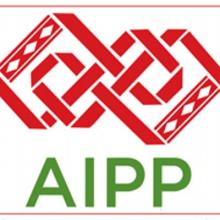Traditional knowledge of Indigenous Peoples Why should it be at the heart of discussions on early warning systems and agriculture?
Resource information
Date of publication
March 2015
Resource Language
License of the resource
Copyright details
©Asia Indigenous Peoples Pact (AIPP)
Asia Indigenous Peoples Pact (AIPP) would like to provide the following recommendations to the 42nd session of the SBSTA:
- Recognize, protect, document and promote the rich traditional knowledge of indigenous peoples relating to disasters and weather forecasting
- Build the capacity of indigenous peoples to understand and use appropriate modern technology and tools relating to early warning systems
- Guarantee the access of indigenous peoples to appropriate disaster risk reductions tools and techniques
- Integrate the traditional knowledge of indigenous peoples with appropriate modern techniques, tools and innovations by taking into account the specific circumstances and conditions of indigenous peoples while developing early warning systems
- Ensure the participation of indigenous peoples and pertinent stakeholders in the development of early warning systems
- Recognize and protect the sustainable practice of shifting cultivation/rotational agriculture as sustainable agro-forestry practice that enhances biodiversity, provide food security and livelihoods to millions of indigenous peoples
- Encourage the parties to undertake immediate review and reform of policy relating to the practice of shifting cultivation and the declaration of national parks that are in violation of the rights of indigenous peoples relating to their lands, territories and resources, and to food security
- Review other types of development projects and mitigation measures such as biofuel plantations, large hydropower dams which pose serious risks and increase vulnerability to sustainable agriculture including on the food security, traditional livelihoods/ occupation of indigenous peoples
- Ensure the full and effective participation of indigenous peoples including women in the conduct of assessment of the risk and vulnerability of agricultural systems at all levels


